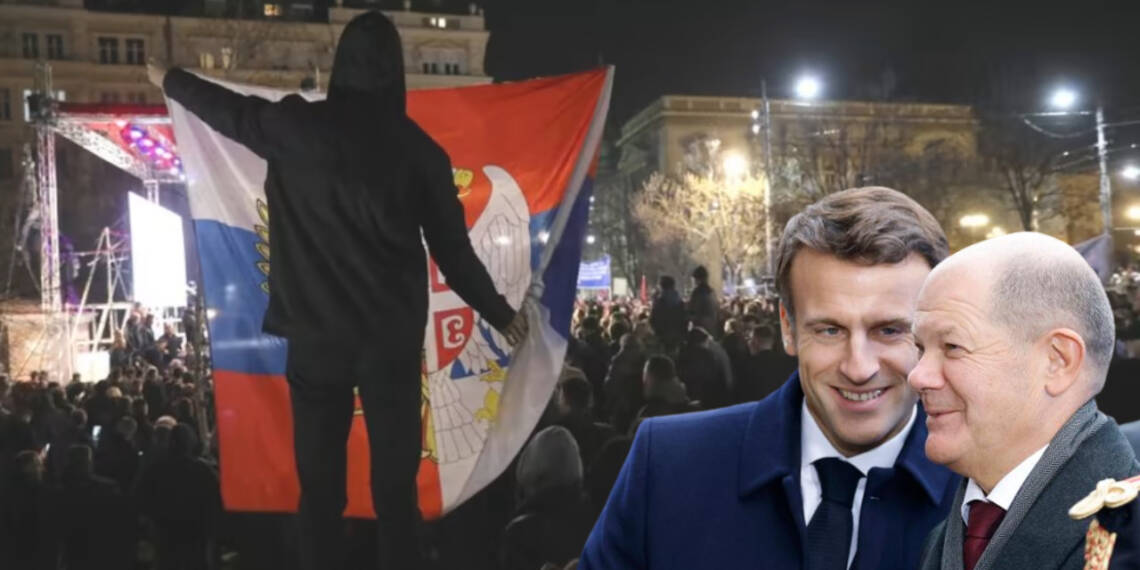The European Union’s big guns have abruptly changed course, leaving Serbia and Kosovo in a precarious position. The West’s long-standing backing of Kosovo’s independence campaign has started to decline. This unexpected turn of events has left both nations in a lurch, raising concerns about the possibility of a war on the horizon.
To understand the current predicament, we must reflect on the past. In the late 1990s, the bombing of Serbia and subsequent division of Kosovo from Serbia were both heavily influenced by the West, led by NATO. Both Serbia and Kosovo understood after the three-month conflict that NATO meant to invade Serbia and grant Kosovo independence. But since then, things have taken a drastic turn.
The Western Support Shift
Contrary to their earlier position, the West has recently demonstrated support for Serbia in Kosovo, which is a shocking turn of events. The Kosovans, who have long sought the support of Western nations against Serbia and, by extension, Russia, are surprised by this change. The shift in support indicates that a potentially explosive situation is developing in the area.

France and Germany’s Silence
The Albanian Prime Minister recently gave the European heavyweights, France’s Emmanuel Macron and Germany’s Olaf Scholz, a draft for the association of Serb municipalities in Kosovo, adding gasoline to the flames. And guess what? The European heavyweights stayed tight-lipped about the contents. The silence in response left many confused. The draft’s contents have not been made public by the European Commission, the United States, France, or Germany.
Albanian PM Edi Rama has drawn up a draft for the Association of Serb Municipalities in Kosovo, which he sent to Macron and Scholz. The association was approved during a 2013 conversation supported by the EU before being deemed unconstitutional in 2015 by Kosovo’s top court. As Kosovo Serbs do not recognise Pristina’s ability to govern, the association would give Serbs collective self-governance in the majority of fields, including health, education, urban planning, and the economy.
After weeks of heightened tensions between Serbia and Kosovo over protests in the north, Rama presented a draft for the association on Thursday.
“Yesterday, I forwarded to President Macron and Chancellor Scholz, who are the two godfathers of the Franco-German proposal, a draft of the association, for which I informed the President of the European Council, Charles Michel, as well as the American side,” he said during a press conference.
Rama said it is a document of the highest international level that takes into account all the reasons for creating the association. He emphasised that Kosovo should accept international proposals as there is a risk of losing its sovereignty.

“I am worried about the ultimate tones of the allies, which can bring incalculable consequences in many aspects, starting from the consequence of the increase in the number of troops in Kosovo, which means a decrease in the sovereign capacity of Kosovo,” he said.
Read More: NATO’s anti-Serbia Balkan bloc ends up making Serbia stronger than ever
Waning Support for Kosovo
The lack of response from France and Germany reveals how weak Western backing is for Kosovo. Because it gives the Serb community in Kosovo more authority, this development could aggravate an already tense situation. The Western world’s lack of response could serve as the impetus for war in the region.
Kosovo’s Concerns
The proposal has caused anxiety in Kosovo. Deputy Prime Minister of Kosovo Besnik Bislimi claimed that Serbia wants to use it as a “Trojan Horse” to destabilise the nation and carry out its ambitions to split it in two. These worries highlight the tensions and fears that have been building in the area as Kosovo senses a possible loss of autonomy and sovereignty.
A worrying shift in power relations may be seen in France and Germany’s quiet on the issue of the association of Serb towns in Kosovo. It draws attention to the potential for a war in the area if Serbia feels empowered to seize control of Kosovo. Withdrawing Western backing for Kosovo might have far-reaching repercussions, ushering in yet another era of unrest and conflict in the Balkans.
Watch More:








